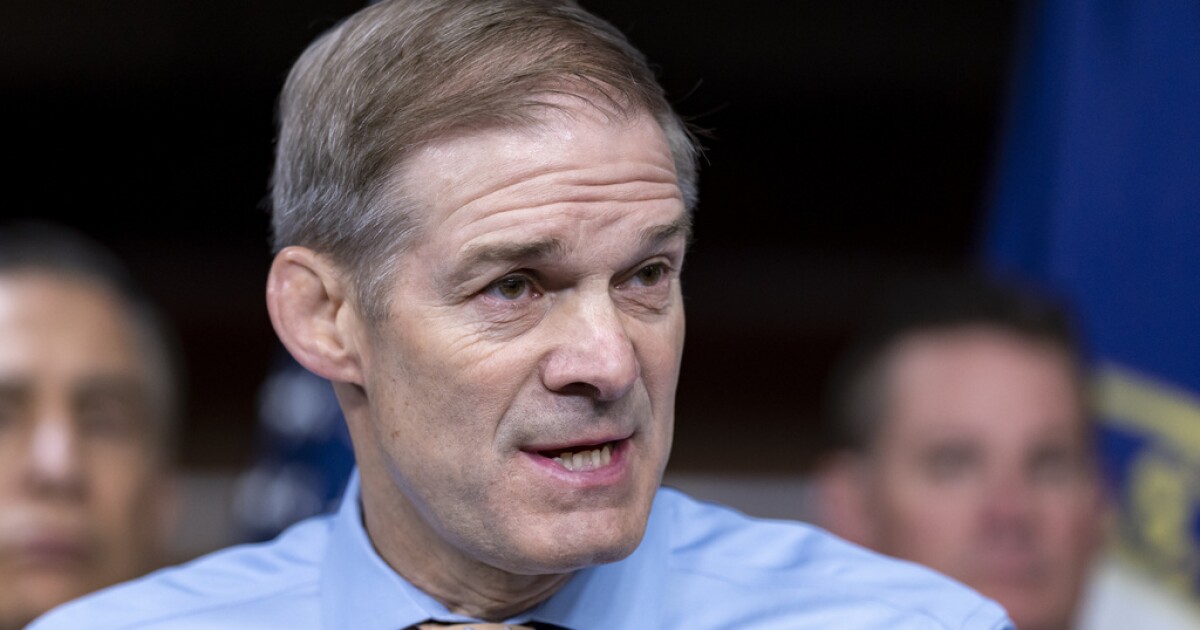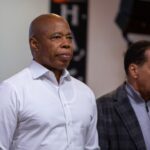

House Judiciary Committee Chairman Jim Jordan (R-OH) sent a letter last week to the lead U.S. attorney on the Hunter Biden investigation, David Weiss, asking him to explain his previous letter to the committee claiming he had “ultimate authority” over the investigation in the wake of new whistleblower testimony alleging the Justice Department interfered in the investigation.
On May 25, Jordan sent a letter to Attorney General Merrick Garland, giving him a June 8 deadline to hand over records related to alleged improper retaliation against IRS whistleblowers who were involved in the criminal tax investigation into Hunter Biden.
CALIFORNIA REPARATIONS: WHAT TO KNOW ABOUT THE PROPOSAL BEING SENT TO THE LEGISLATURE
Then on June 7, Weiss responded to the May 25 letter on behalf of Garland, saying he had “been granted ultimate authority over this matter, including responsibility for deciding where, when, and whether to file charges.”
Jordan said Weiss’s response “declined to provide any substantive information” to the committee’s request. And now, after two IRS whistleblowers contradicted Weiss’s “ultimate authority” claim, Jordan wants clarity on his previous letter.
The chairman is asking Weiss to provide the following information: a list of those who drafted and assisted in drafting his June 7 letter, who instructed him to sign and send the letter, when he first learned or was made aware of the committee’s May 25 letter to Garland, who at the Department of Justice forwarded him the May 25 letter, and whether there were any discussions with Garland or any other person at the DOJ about the committee’s May 25 letter.
The two whistleblowers, IRS supervisory special agent Gary Shapley and an unnamed source, testified to the House Ways and Means Committee staff about apparent DOJ interference and “preferential treatment” during the Hunter Biden investigation. The whistleblowers also testified that the DOJ “concealed” unverified foreign bribery allegations involving then-Vice President Joe Biden and his son from the IRS and FBI investigators on Hunter Biden’s case in Delaware.
They asserted that the DOJ blocked Weiss from bringing Hunter Biden’s three federal charges, which he plans to plead guilty to, in Washington, D.C., or California like he wanted to. They also stated that Weiss had sought special counsel status but was denied.
These allegations from the whistleblowers fly in the face of Weiss’s statement that he had the “ultimate authority” over the entire investigation. Garland denied the claims on Friday, saying he didn’t know how it was possible for anybody to block Weiss “from bringing a prosecution given that he ever has this authority” and that Weiss “was given complete authority to make decisions on his own.”
But lawyers for Shapley released a statement over the weekend saying Weiss told six witnesses he did not have the authority to bring the charges in other districts.
Jordan also reaffirmed in the letter that the committee is requesting information pertaining to alleged improper retaliation against IRS whistleblowers.
CLICK HERE TO READ MORE FROM THE WASHINGTON EXAMINER
“The Committee has articulated its interest in obtaining material concerning a nonprosecutorial matter — namely, material referring or relating to the retaliation of an IRS Criminal Supervisor Special Agent and his investigative team for speaking to Congress,” Jordan said in the letter. “The requests do not seek information that bears on the particulars or substance of an open criminal investigation. Instead, the Committee seeks information that bears on whistleblower retaliation to inform potential legislative reforms to protect Department whistleblowers — a matter that the Committee has also been examining with respect to the FBI.”
Weiss was given a deadline of July 6 to comply with the requests in the letter.




